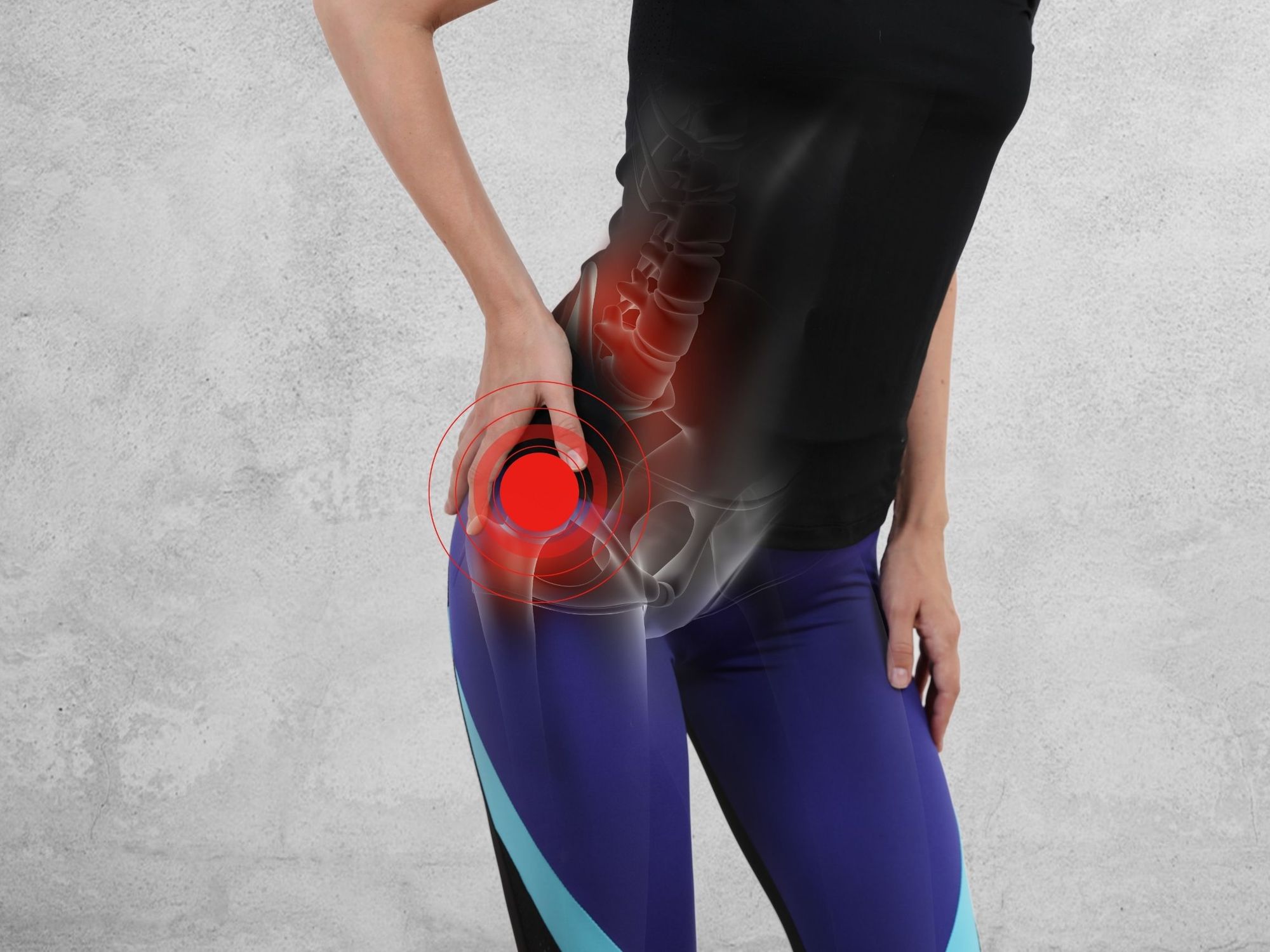Going through total hip replacement surgery can make you feel nervous and scared. Knowing what to expect after your surgery can help ease your nerves and make you feel better prepared for the surgery. Here is what to expect after total hip replacement surgery and what to do to recover faster.
1. Pain After A Hip Replacement
You will feel pain after hip replacement. However, everyone is different and people will feel different levels of pain. Be prepared to feel some pain or discomfort afterwards, especially in the first three days following surgery. On the first day, you will be given pain medication to help alleviate the pain. On day two, you will likely be able to get out of bed and start moving with assistance. Although you had surgery on the largest joint in your body, you will be walking on it in only one or two days. Pain levels will probably be the most around the third day after surgery because this is when inflammation around the hip is the greatest. Talk to your doctor about their recommendations for using ice and taking an anti-inflammatory medication starting on the day of surgery. Typically, once you get through day three, the swelling and pain will get better[1]. We've written a great blog about how to manage pain after a knee replacement, where the pain management strategies can be used to manage pain after a hip replacement .
2. Walking After A Hip Replacement
You will most likely be up and walking the day after your surgery. Take it slow and don’t push yourself beyond what you can handle.[1][3] Moving after surgery is very important to speed up your recovery. The first day that might just be you getting out of bed and to the hallway but don't feel discouraged by this. Moving around will also help to prevent blood clots, increase your muscle strength in your lower body and prevent your new hip from becoming stiff. Also, walking with a walker or cane is one of the goals you need to accomplish before going home from the hospital.[1]
3. Participating in Physical Therapy
After hip surgery, your mobility will be limited. You will have supervised physical therapy before you are discharged from the hospital or surgical center. You will typically be discharged two to four days after surgery to either your home or to a rehabilitation facility.[1][3] How long you stay in the hospital varies based on which country you live in. It will also be different based on your orthopaedic surgeon. It is a good idea to ask your surgeon before the surgery how many days you will be expected to stay in the hospital. Here in Toronto, Canada it is becoming more common to send people home on the same day as their surgery. We will leave the benefits and limitations of a hospital stay for another blog. Here are some goals to use as a checklist when transitioning back to your home:
- You can get out of bed by yourself
- Your pain is adequately under control usually with medication
- You can eat, drink, sleep and go to the bathroom (for more information about how to go to the washroom and shower , check out this blog)
- You can walk with a cane, walker or crutches
- You're ready to do home exercises on your own
- You know what you need to do to protect your new hip from an injury[1]
When you are sent home you will be expected to do some physical therapy on your own, unsupervised.[2] Anticipate doing about 60 to 90 minutes worth of exercises 3 times per day. You may need some help with activities of daily living, such as cooking, cleaning, and doing laundry. Have a partner, family member, friend, or personal support worker help you with these tasks as best as they can. Thankfully, this stage usually doesn’t last long especially if you are doing your rehab exercises prescribed by the physical therapist.[2] However, some people do not have physical therapy coverage after being discharged from the hospital. This is a major barrier to physical therapy access . Being physically active is very important for your recovery after surgery.[3] Generally, people who do not have access to physical therapy after surgery experience less successful recovery.
4. One To Two weeks After Surgery
One or two weeks after surgery you’ll probably be able to:
- Move about your home more easily
- Walk short distances (10-25 meters)
- Prepare your own meal: One to 2 weeks after surgery you may be able to stand at the kitchen counter without a walking aid. Always follow the advice of your surgeon or physical therapist
- Take showers: Some people are initially advised to avoid showering for a few days to protect the surgical incision. Guidelines on when it’s okay to shower can vary depending on the type of bandage and other factors, so follow your surgeon’s instructions[2]
5. How Long Until I Can Return To My Normal Activities?
You can expect it to take 10-12 weeks before you are able to return to all your daily life activities. It’s important to remind yourself that feeling frustrated is a normal part of the healing process.Take a break and relax from pushing yourself in times like this. Do something you enjoy. Think about how far you have already come, then get back up and keep on moving. It is also important to ask for assistance when you need it. Ten to twelve weeks will feel like a long time, but once you are enjoying a pain-free stroll that time will be just a memory.[1]
Conclusion
This blog discusses various aspects to consider after a total hip replacement. This includes walking, participating in physical therapy, and what to expect the weeks following your hip replacement. For more information about hip replacement, check out Curovate. Curovate is a rehabilitation app designed for knee replacement, hip replacement and ACL injury. With step by step videos, progress tracking and the ability to measure your range of motion, Curovate lets you start your recovery at home to get back to the things you love!
If you need further customized assistance during your surgery or injury recovery check out our Virtual Physical Therapy page to book your 1-on-1 video session with a physical therapist.
Other Recommended Blogs
- Does running cause knee osteoarthritis? Can I still run after my ACL surgery? Will running wear out my knee?
- My surgeon said I have knee osteoarthritis but I don't have pain - should I get a knee replacement?
- What is Osteoarthritis?
- What's the difference between Arthritis, Osteoarthritis and Osteoarthrosis?
- How to Become More Consistent with your Exercise Program Using Curovate
- Should I be experiencing pain when I do my rehabilitation exercises?
References
1. Jo, C. (n.d.). Strategies for a Quick Recovery After Hip Replacement Surgery. Retrieved December 01, 2020, from https://homecareassistance.com/blog/expect-hip-replacement
2. Sporer, S. (2020, March 31). What to Expect After Hip Replacement Surgery. Retrieved December 01, 2020, from https://www.arthritis-health.com/blog/what-expect-after-hip-replacement-surgery
3. Murphy, J. (2018, June 26). What To Expect After Hip Replacement Surgery. Retrieved December 01, 2020, from https://www.geisinger.org/health-and-wellness/wellness-articles/2018/06/26/16/11/what-to-expect-after-hip-replacement-surgery
 |
 |
|---|







